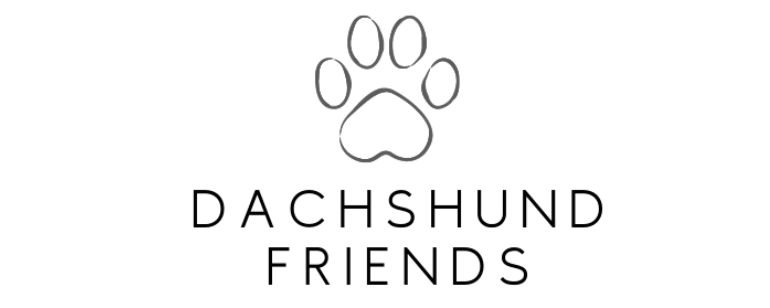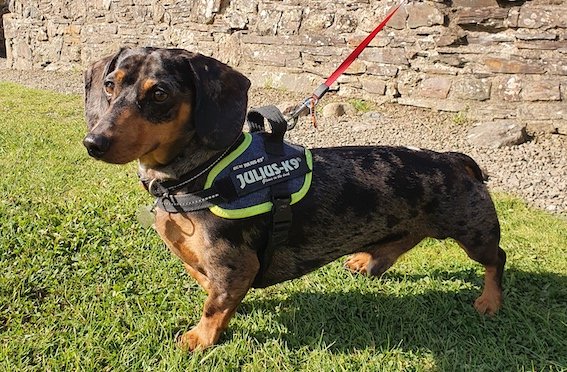How to Choose a Dachshund Breeder
If you are able to rescue or adopt a dog, this would always be my first choice. There are so many unwanted dogs needing a home, especially in the post-pandemic world where we have seen rescues inundated with regretted lockdown purchases. However this isn’t always possible, as rescues often have strict requirements for adopting a puppy, such as not accepting households with children, which means many prospective owners are unable to take on a rescue dog.
When we chose the dachshund as the number one breed we were looking for five years ago, unwanted dachshunds in rescue centres were also almost impossible to come by. We had scoured all of the main local dog rescues and dachshund specific adoption sites and had no luck in finding a match for us. This then led us to research dachshund breeders in search of a puppy instead. It was really important to us that we found a reputable breeder, as we were concerned about the potential to be ripped off or to unwittingly purchase from a puppy farm, so we did a lot of research before committing to make sure we were happy with our choice.
I won’t go into recommending the names of any specific UK breeders here as I believe that the process of choosing a breeder and a puppy from a litter is a very personal decision, that you should make sure it feels right to you, and that it’s a good match. There are however a few things I would definitely consider when looking for a puppy.

Ask for recommendations
Word of mouth is very powerful, especially when it comes to selecting a dog breeder. Usually, when people have had a good experience with a breeder they will be happy to share more details. Prior to selecting our puppy we joined many different dachshund specific groups on Facebook and asked other local owners for advice and recommendations to help us narrow down our list of breeders to approach.
Another thing worth doing is to find out what the current average asking price is for dachshund puppies from other owners to make sure you aren’t getting scammed by an exceptionally low or high price. Be especially wary of any breeders selling “rare” colours at a premium, as there are only a handful of Kennel Club approved coat colours, with those coat colours that are often advertised as “rare” coming from poor breeding practises and bringing with them a whole host of potential health problems.
The breeder probably has a long waiting list
Really popular and responsible breeders are likely to have a long waiting list, so you may need to join a queue before you can get to see any puppies. If the breeder has a high turnover of dogs and constantly has puppies available, this is likely to be a red flag.
You can see puppies with the mother, before paying any money
Make sure you are able to visit and see the puppies with the mother. Some breeders (mostly unscrupulous ones) will try to press you hard to put down a non-refundable deposit before you have seen the puppies in person. This however is extremely risky, so you should always make sure you have seen them first and made sure that the set up is legitimate.
The puppies should always still be with the mother up until 8 weeks, and the breeder should be able to give you details about the father of the litter too. If anything feels off at this point, you have the option to walk away and look for another breeder instead, and doing this before you have committed any money means you won’t be out of pocket if you do decide it’s not for you.
The puppies are clean and look healthy, and are living in a good home environment
In addition to making sure you have seen the puppies with the mother, you should also do further checks to make sure the puppies are being well cared for. Check over the puppy carefully when you do get to visit, make sure it looks well-fed, clean and has no obvious signs of illness. Another good sign is that the litter is being kept in a home environment, as opposed to somewhere more like kennels.
The breeder is happy to answer any questions you may have
When considering getting a dachshund from a breeder, it’s essential to gather information to ensure that you are dealing with a responsible and ethical breeder. A responsible and reputable dog breeder is going to be happy to answer any questions you may have about the litter you are looking to purchase from, to help you make sure the puppy is a good fit for you.
Some of the questions you might want to ask your dachshund breeder before agreeing to a sale include:
Breeding Practices & Ethics:
-
How long have you been breeding dachshunds?
-
What motivated you to start breeding dachshunds?
-
Can you provide references from previous buyers?
-
How many litters do your breeding dogs have in a year?
-
Are you involved in any breed clubs or organisations?
-
Can I visit to meet the puppies and see the living conditions?
-
Can I meet the puppy’s parents or see pictures if they are not on-site?
-
What is your process for matching puppies with new owners?
-
Do you have a contract outlining the terms and conditions of the sale?
Health & Genetic Testing:
-
Have the parents undergone health screening for common dachshund health issues?
-
Have the parents been tested for genetic conditions that can affect Dachshunds, such as progressive retinal atrophy (PRA) or intervertebral disc disease (IVDD)?
-
Can you provide documentation of health and genetic screenings for the puppy’s parents?
Puppy Socialisation & Temperament:
-
How do you socialise your puppies before they go to their new homes?
-
Have the puppies been exposed to various people, environments, and noises?
-
How would you describe the typical temperament of your dachshund puppies?
-
Have you noticed any specific traits or behaviours in this particular litter?
-
Can you provide information about the dachshund breed’s characteristics, exercise needs, and potential health issues?
Vaccinations and Worming:
-
What vaccinations will the puppy have received before going to its new home?
-
How often have the puppies been dewormed, and can you provide a record of their vaccinations and deworming schedule?
Diet and Care:
-
What type of food are the puppies being fed, and can you provide recommendations for their future diet?
-
How are the puppies cared for in terms of grooming, exercise, and mental stimulation?
Guarantees and Support:
-
Do you offer any health guarantees for your puppies, and what is your policy if a health issue arises?
-
Will you be available for support and advice after the puppy goes to its new home?
The breeder also wants to ask you lots of questions
Even more important is to look out for a breeder that is keen to ask lots of questions of you prior to agreeing a sale. A responsible breeder should care about where and who they let purchase their puppies, and want to ensure that the puppies are going to good homes. A red flag is likely to be the breeder only caring about the sale and not the welfare of the dogs.
Check whether the breeder is council licensed
In the UK, it is a legal requirement for dog breeders to be council licensed if they are deemed to be running a business that breeds and advertises dogs for sale, or breeding three or more litters and selling at least one puppy in a 12 month period. Even those more casual or occasional breeders of one or two litters may be required to obtain a licence if they are considered to be “breeding dogs and advertising a business of selling dogs”, for example making a profit from the sale of their puppies. This means it’s important to check that your chosen breeder has the necessary licensing in place.
Check if the breeder is part of the Kennel Club Assured Breeders scheme
This is certainly not a requirement, but can give added peace of mind when selecting a breeder, as membership of the scheme brings with it certain guarantees around the health and wellbeing of the dogs. The Kennel Club Assured Breeders scheme promotes responsible dog breeding practices and, as part of this, checks are completed to make sure that the puppies are being bred to excellent standards and being given the best start in life.
In addition to this, you can also check to see whether the litter has been registered with the Kennel Club. Again not a requirement, but does add that extra reassurance. The breeder should be able to provide you with the puppy’s registration details, which you can then check on the Kennel Club website.
The puppies have had health checks and necessary tests, for which the breeder can provide proof
Dachshunds, especially miniatures can inherit certain genetic conditions, so it’s important to make sure that for miniature dachshunds both parents have been tested PRA clear. Progressive Retinal Atrophy is an inherited eye disease which can affect all types of miniature dachshunds. Miniature wire-haired dachshunds should also be tested for Lafora disease, which is an inherited type of epilepsy.
Make sure you ask the breeder to confirm what (if any) tests both the parents and the puppies have had before you commit.
The puppies are microchipped and the breeder provides you with all necessary paperwork
In the UK it is a legal requirement for all puppies to be microchipped, and it is a dog breeder’s responsibility to ensure puppies are microchipped before selling them to you. It is important to make sure that you check this, and that the breeder changes over the details to yours and provides you with the microchip information.
The puppy is at least 8 weeks old before the breeder will sell it to you
Puppies should be with the mother until at least 8 weeks old, and any responsible breeder will make sure not to sell puppies before this date. If the breeder is offering to let puppies go before the age of 8 weeks (or you suspect that they are) then this is a definite red flag!
The breeder provides you with an initial puppy pack, including some food, to take home with your new dog
Not essential, but it’s a nice touch for the breeder to provide you with some basic essentials to take home with you with your new puppy. At the very minimum, they should provide you with a small amount of the puppy’s food to take home with you, so that you can keep them on the same food they have been weaned on. Good breeders are likely to also provide a “puppy pack” with items such as a blanket or toy that has been with the litter for comfort, as well as some treats.
Ultimately, getting a dachshund puppy is a huge commitment and one that should not be rushed into without doing proper research and due diligence – both to understand the breed itself, but also to ensure that the breeder you are purchasing from is genuine and also cares about the welfare of the puppies they are breeding.







